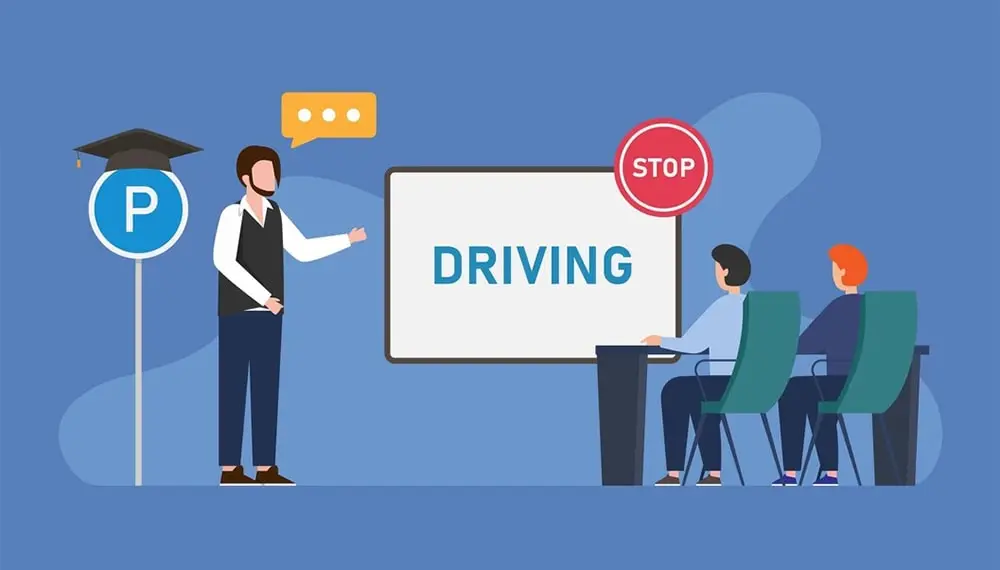How to Use Assessments For Better Hiring
SK Bugnait
12 Sep, 2023

A Comprehensive Guide for Global Leaders
In the intricate dance of corporate recruitment, every step counts. As businesses strive to find the perfect fit for their teams, assessments have emerged as the compass guiding them through the maze of potential hires. This guide delves deep into the world of assessments, offering insights and strategies for global leaders.
The hiring landscape has undergone a seismic shift over the past few decades. From sifting through stacks of resumes to leveraging advanced analytics, the recruitment process has evolved to be more strategic and data-driven. With their objective and scientific approach, assessments have become the linchpin in this transformation, ensuring that businesses hire the best talent and nurture and retain them.
However, with the plethora of assessment tools and methodologies available, how can HR professionals, learning and development leaders, and CHROs navigate this landscape effectively? This guide aims to demystify the world of assessments, providing actionable insights and strategies to harness their power for better hiring.
1. The Evolution of Hiring
The journey from traditional hiring methods to modern, data-driven approaches has been transformative. Assessments have played a pivotal role in this evolution, offering a more objective and comprehensive view of potential hires.
- Traditional Methods: In the past, companies primarily relied on CVs and face-to-face interviews. This approach, while personal, often led to subjective hiring decisions based on gut feelings or first impressions.
- Modern Approach: Today's recruitment strategies emphasize data-driven methodologies, predictive analytics, and objective evaluation. This shift ensures hiring decisions are based on concrete evidence and measurable criteria.
- The Role of Assessments: Assessments have emerged as invaluable tools in this new landscape. They provide an objective measure, reducing biases, enhancing decision-making accuracy, and ensuring that candidates align with the company's ethos and role requirements.
2. The Science of Assessments
Behind every assessment lies a foundation of rigorous scientific research and methodology. These tools, grounded in psychology and data analytics, offer a window into a candidate's potential and fit, ensuring that businesses make informed decisions.
- Psychometric Tools: These delve deep into psychological science, offering insights into the behavioral traits, motivations, and communication styles of candidates. Such tools can be invaluable in creating an ideal candidate profile, setting a benchmark for potential hires.
- Predictive Validity: It's paramount to ensure that assessments measure attributes and skills directly relevant to the job. That will ensure they can accurately predict future performance, aligning hires with company goals and objectives.
- AI and Technology: Integrating AI into assessments offers innovative solutions, automating processes and providing more profound insights. However, ensuring these AI-driven tools are unbiased, transparent, and scientifically valid is critical.
3. Legal Implications in Assessments
Navigating the legal landscape of assessments is crucial. As these tools become integral to the hiring process, businesses must adhere to legal standards and avoid potential pitfalls.
- Potential Pitfalls: Some assessment tools can inadvertently lead to discriminatory hiring practices if not judiciously chosen and implemented. That poses legal risks and can harm a company's reputation.
- Validation: Regular validation of assessment tools is essential. It ensures they remain relevant, effective, and legally compliant. It is vital to ensure these tools have been tested and validated for their specific use and audience.
- Staying Updated: The legal landscape is ever-evolving. Companies must remain informed and agile, adapting their assessment strategies to align with current laws and regulations.
4. Comprehensive Candidate Evaluation
In today's competitive job market, a holistic evaluation approach is indispensable. Modern assessment systems like that from Core Competency provide a 360-degree view of candidates, ensuring they are the right fit for both the role and the company culture.
- Beyond the Resume: Today's assessments evaluate attributes, from personality traits and cultural fit to motivational drivers and potential growth areas. This comprehensive approach ensures that businesses get a complete picture of potential hires.
- Predictive Power: Advanced assessment tools can forecast a candidate's potential trajectory within the organization. This predictive power ensures long-term alignment between the employee and the company, fostering growth and success.
- Feedback Loops: Regular check-ins with employees post-hiring can refine the assessment process. This continuous feedback ensures the process remains attuned to company needs and can adapt to changing dynamics.
5. Choosing the Right Assessment Tool
The world of assessment tools is vast and diverse. Finding the right solution requires understanding company needs, role requirements, and the specific attributes being evaluated.
- Diverse Landscape: The market offers many tools, each catering to different needs. The options are vast, from cognitive assessments that gauge critical thinking to personality tests that delve into behavioral traits.
- Tailored Solutions: It's essential to choose tools that resonate with the company's ethos, values, and the specific nuances of the role. A one-size-fits-all approach can lead to suboptimal results.
- Consistency:Ensuring uniformity in the assessment process across all hiring levels is crucial. This consistency ensures fairness, objectivity, and alignment with company standards.
6. The Role of Assessments in Employee Retention
While hiring is the starting point, retention is the end game. Assessments are pivotal in ensuring employees remain engaged, motivated, and aligned with company goals.
- Beyond Hiring: Assessments offer insights that can predict a candidate's long-term fit within the company culture. This foresight ensures that employees remain engaged and contribute positively to the organization.
- Continuous Evaluation: Regular assessments post-hiring can provide invaluable insights into employee engagement, motivation, and potential areas of growth or concern. This constant evaluation ensures that businesses can address issues proactively, fostering a positive work environment.
7. The Core Competency Edge in Assessments
In the competitive world of assessment solutions, Core Competency stands tall. Our legacy of excellence, innovation, and client-centric approach sets us apart, making us the go-to choice for businesses worldwide.
- Pioneers in the Field: With a rich history of serving top-tier organizations, Core Competency is synonymous with excellence in the assessment landscape. Our solutions are tailored, innovative, and aligned with global best practices.
- Innovative Solutions: Offering a suite of tools tailored for modern businesses, we ensure a holistic approach to hiring, from initial screening to onboarding. Our solutions resonate with the unique needs of companies, providing a tailored approach to hiring.
- Global Reach: Catering to diverse sectors and industries, our solutions are versatile, adaptable, and designed for global leaders.
In the dynamic world of corporate hiring, assessments are the compass guiding businesses to their true north. With a strategic approach, the right tools, and partners like Core Competency, companies can hire and nurture and retain the best talent, ensuring sustained organizational growth.
As the industry leader in assessment solutions, Core Competency has empowered businesses worldwide to redefine their hiring strategies. To experience this transformative journey, contact our client success representative for a free demo today.




